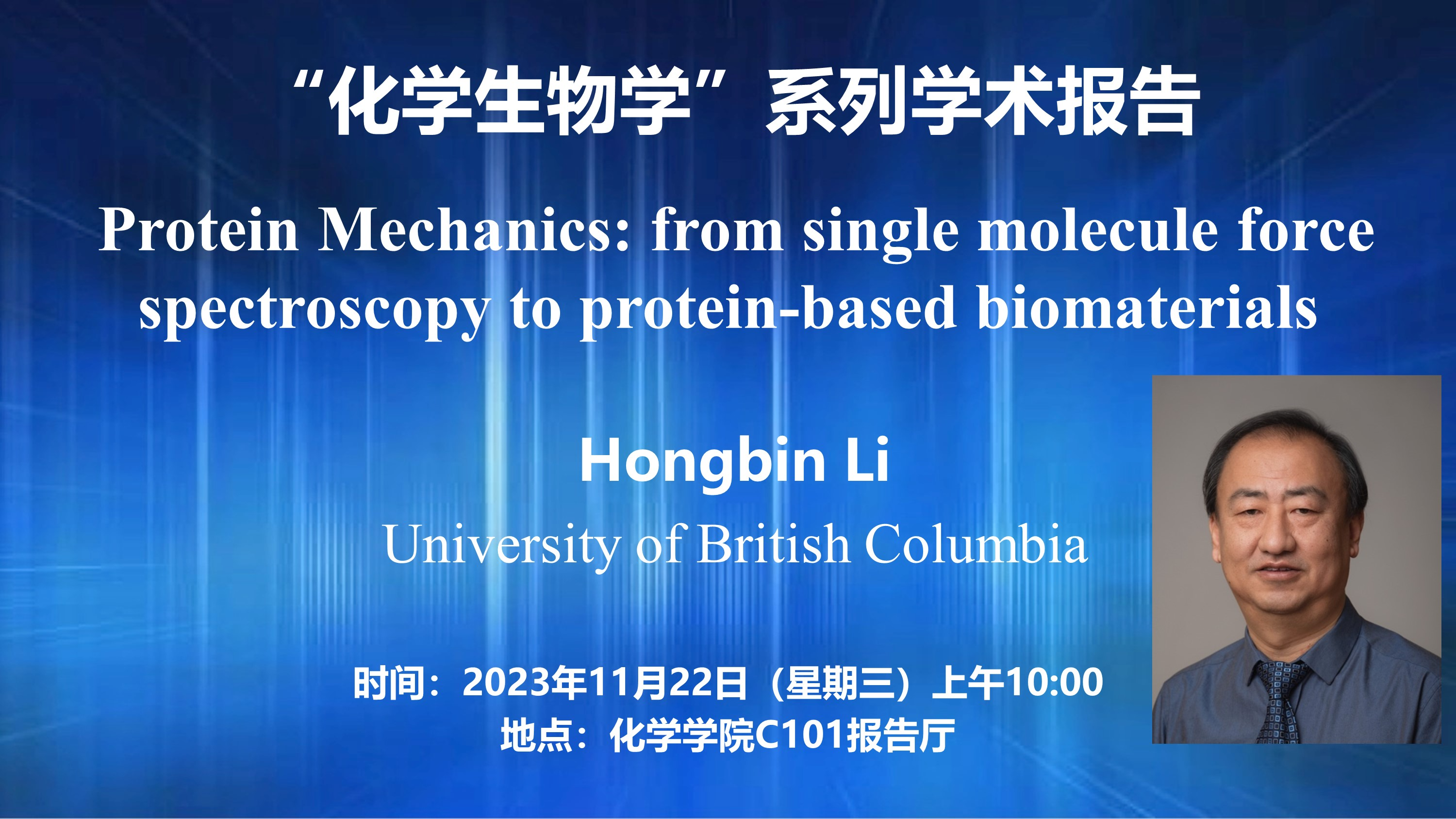
Speaker: Hongbin Li, Department of Chemistry, University of British Columbia
Time: 10:00 a.m., November 22, 2023, GMT+8
Venue: C101, College of Chemistry and Molecular Engineering, PKU
Abstract:
Elastomeric proteins function as molecular springs in their biological settings to establish elastic connections, and provide mechanical strength, elasticity and extensibility. To fulfill their biological functions, elastomeric proteins have evolved to assume different structures, from simple random coil-like structure to more sophisticated beads-on-a-string conformation, and exhibit distinct mechanical properties. The development of single molecule force spectroscopy techniques has made it possible to directly probe the mechanical properties of such elastomeric proteins at the single molecule level and allowed to understand molecular design principles of these complex
protein polymers. This knowledge has enabled us to engineer novel elastomeric proteins to achieve tailored and well-defined nanomechanical properties. Going a step further, we have started to employ these novel elastomeric proteins as building blocks to construct protein-based biomaterials, which in turn provide an ideal system to understand how single molecule nanomechanical features are translated into biomechanical properties of macroscopic materials. Specific examples will be given on engineering protein hydrogels to mimic the passive elastic properties of muscle, as well as highly stiff and highly tough protein biomaterials to the mechanical properties of cartilage. These studies will pave the way to utilizing proteins as building blocks to engineer new generations of protein-based biomaterials for diverse applications in biomedical engineering as well as material
sciences.
Source: College of Chemistry and Molecular Engineering, PKU